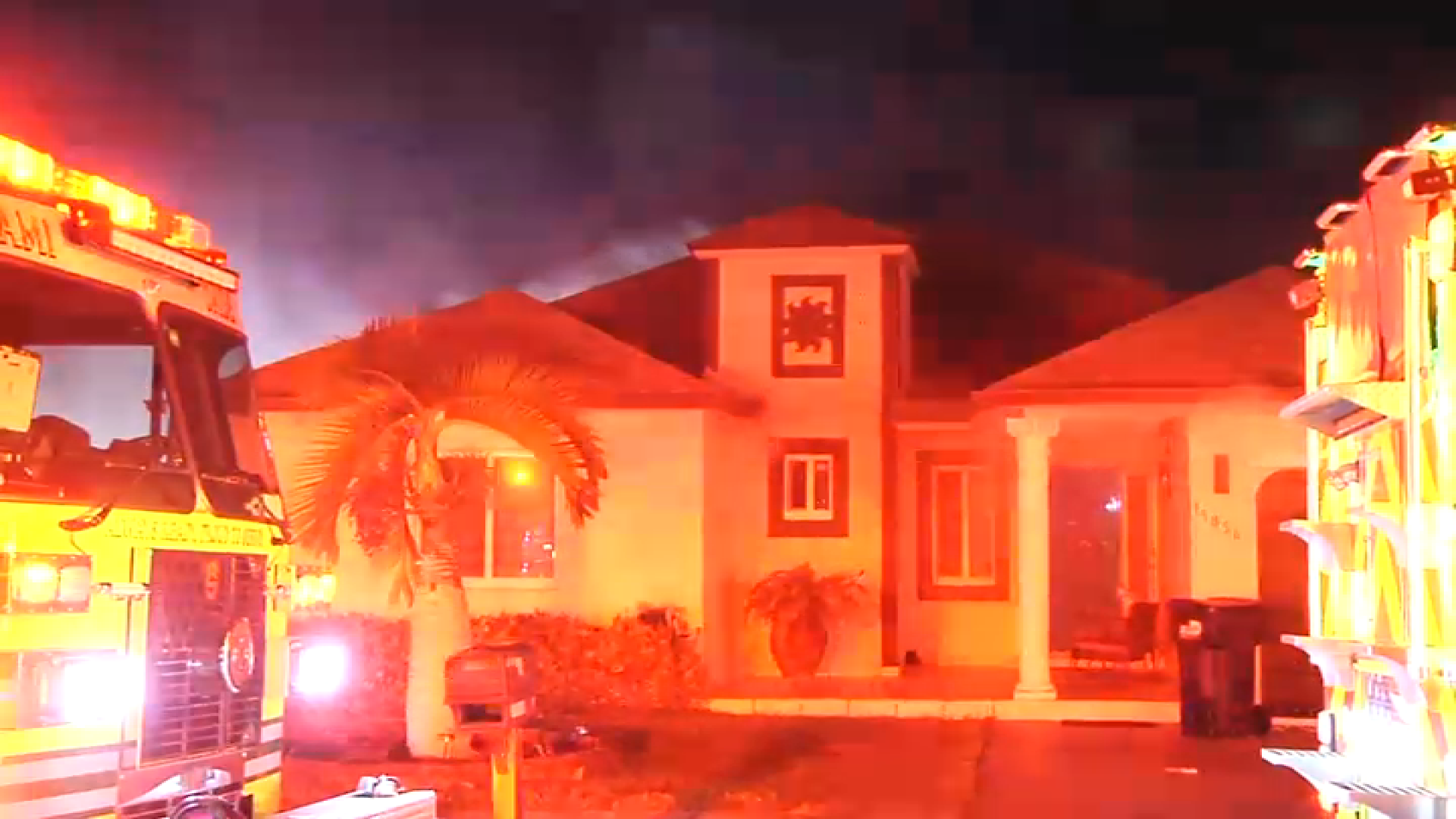What to Know
- NBC 6 Responds helped a Pompano Beach couple after what they thought was a good used car deal turned bad.
A Broward County couple thought they found the perfect truck online. So they got a $35,000 loan from a bank. But when that good deal turned bad, they turned to NBC 6 Responds for help.
“It’s upsetting. It’s very frustrating,” says Stuart Reiss. “I’m paying for something I don’t have.”
Reiss and his wife, Rose Ann, were paying Wells Fargo $606 a month – that’s principal and interest for a white, 2012 Ford F-250 they now only have in pictures. On March 9, 2015 – the day of the transaction – Reiss says they met the seller at the bank.
“We never touched any money,” he says. “He [seller] walked into the bank, gave them the title. They gave him a check [for $33,000]. We just signed some loan papers and got a set of keys.”
Everything seemed fine until April of this year, when authorities showed up at Reiss’ home.
“I went to go to work at 6 o’clock in the morning,” he says. “I walked outside. As I went to start to the truck, three police officers surrounded me, told me to get out of the truck, told me that the vehicle was a stolen vehicle.”
Local
Reiss says officers told him the VIN on the registration only matched the VIN on the door frame and not the rest of the truck. It turns out, he says, the VIN was cloned.
“He said you’re not taking the truck anywhere,” Reiss recalls the officer telling him. “He said we’re keeping the truck.”
After several phone calls with Wells Fargo, Reiss says it became clear they were still responsible for the entire loan. That’s when they called NBC 6 Responds.
“I want the loan to be forgiven,” Reiss says. “I’m out $10,000 and I don’t have a vehicle and Wells Fargo doesn’t want to take any responsibility at all. They say they weren’t defrauded. Meanwhile, they took a fake title from a criminal and they gave that criminal a check and cashed the check for him.”
In May, the Florida Department of Highway Safety and Motor Vehicles sent the couple a letter, saying the title for the truck was “issued in error”. We asked the state how this happened and were told they could not comment because “the case is currently under investigation”.
Wells Fargo sent NBC 6 a statement saying this was a “private party transaction” and putting the responsibility for researching the history of the vehicle on the buyer. It goes on to say, “…the vehicle must be used as collateral for the loan. If the collateral is lost for some reason outside of Wells Fargo’s control, the loan agreement remains the obligation of [the customer]”. The statement adds: “…as a courtesy Wells Fargo automatically reduced the interest rate to zero percent and lessened the balance of the loan to refund the interest … already paid.”
That’s more than $2,300 in interest applied to the remaining balance. Reiss says he was told his monthly payment would go from $606 to $475.
Reiss, who now drives a new truck he purchased from a dealership, says he is cooperating with authorities, who are investigating the case.
“I will always buy my vehicles form a dealer from now on ‘cause the criminals are smarter and smarter,” Reiss says.
The best way to protect yourself when buying a used car is to have the VINs physically inspected before the purchase, to ensure they all match.
It’s also a good idea to learn as much as you can about the seller, if he or she isn’t known to you.
Wells Fargo Tips:
Over the past several years, private party auto purchase transactions have gained popularity with consumers. It’s easy to see the benefit of buying a car from a private seller. Typically the price of the vehicle is lower when compared to the dealer price and you get to skip the unpleasant and often confusing dealer negotiation process. However, buying a car from another individuals is not as easy and risk free as it might seem. To help consumers navigate through the process, Wells Fargo Direct Auto Finance came up with these simple tips:
KNOW THE VEHICLE:
• It’s important to do thorough research on the vehicle before making the final purchase decision. Ask the seller for maintenance records and test drive the vehicle. Use tools like NADA Guide of Kelly Blue Book for vehicle value information and CARFAX for maintenance and accident history. It often helps to hire a trusted mechanic for a thorough vehicle inspection.
KNOW THE SELLER:
• Unless the seller is your relative or a close friend, you should learn as much as you can about the seller. Start by collecting contact information like seller’s phone number and address, and try to verify the validity of this information. Make sure that the seller is the rightful owner of the vehicle by asking for a copy of the title and matching the seller’s name to it. Be aware of sellers that are selling a vehicle for someone else or don’t have the title. Often these transactions result in fraud.
KNOW YOUR FINANCING OPTIONS:
• Sometimes consumers choose to pay cash for a vehicle purchased from private seller which works for small amount transactions but might be burdensome if the transaction amount is high. Many financial institutions like Wells Fargo have affordable loans specifically designed to facilitate a private party vehicle purchase. Consumers can apply for Private Party Purchase loans on-line, by phone or in the nearby bank store. Having the vehicle and seller information ready when applying significantly expedites the loan approval process. Banks might even ask you for a copy of the title upfront.
• It is important to determine if there is a lien from a financial institution on the vehicle title. If yes, find out the details of the lien and how it will be released after the sale. Often your financial institution can help you direct funds to the lien holder to help with the lien release.
KNOW THE PAPERWORK PROCESS:
• One of the most important steps of the private party purchase transaction is the titling process which is completed by you the buyer. Contact your local Department of Motor Vehicles to learn more about the title transfer process, necessary forms and tax information. Make sure to collect the signed title from the seller which can be temporarily used to prove your ownership of the vehicle while the new paperwork is in process.
Bottom line, doing upfront research, asking questions and understanding each step of the process can lead to a risk free and easy private party vehicle purchase experience.



